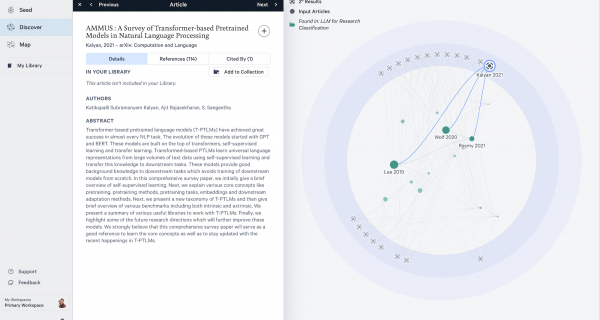Top 37 Online Master’s Degrees: Enhance Your Career with the Best Programs

Are online master’s degrees becoming more popular?
Online master’s degrees have been steadily growing in popularity over the past few years. The convenience and flexibility offered by online education have contributed to this trend. Many reputable universities and colleges now offer accredited online master’s degree programs across a wide range of disciplines, making higher education more accessible to individuals who may have work, family, or other commitments that make traditional on-campus learning challenging. The advancements in technology, the quality of online course offerings, and the recognition of online degrees by employers have all contributed to the increasing popularity of online master’s degrees.
Is it a good idea to pursue an online master’s degree?
Whether pursuing an online master’s degree is a good idea depends on your individual circumstances, goals, and preferences. Here are some factors to consider:
- Flexibility: Online master’s programs offer greater flexibility in terms of scheduling. This can be beneficial if you have work, family, or other commitments that make attending traditional on-campus classes difficult.
- Convenience: Online programs eliminate the need to relocate or commute to campus, saving time and money.
- Cost: Online programs might be more cost-effective in terms of tuition and associated expenses.
- Learning Style: Consider your learning style. Online learning requires self-discipline and motivation, as well as the ability to effectively manage your time and stay organized.
- Networking: Traditional on-campus programs might offer more opportunities for in-person networking with professors and fellow students. Online programs often incorporate virtual networking opportunities.
- Program Reputation: Research the reputation of the online program and the institution offering it. A strong reputation can positively impact your future career prospects.
- Technology Skills: Online learning requires proficiency in using technology and online platforms. Make sure you’re comfortable with the technical aspects.
- Practicality: Consider whether your chosen field of study requires hands-on experience or practical training that might be more challenging to replicate in an online format.
- Career Goals: Evaluate whether the online master’s degree aligns with your career goals and aspirations. Some fields may require in-person experiences or connections that an online program might not provide.
- Residency Requirements: Some online programs might have occasional residency requirements where you need to visit the campus for certain activities. Make sure you’re aware of these requirements.
In summary, an online master’s degree can be a great option for individuals seeking flexibility, convenience, and cost savings. However, it’s crucial to thoroughly research and assess the program, institution, and its fit with your goals before making a decision.
What are the main benefits of studying a master’s program?
Studying a master’s program offers a range of benefits that can significantly enhance your personal, professional, and academic growth. Here are some of the main benefits:
- Specialized Knowledge: Master’s programs provide in-depth and specialized knowledge in a specific field of study. This expertise can make you a valuable asset in your chosen industry.
- Career Advancement: Many professions require a master’s degree for career advancement to higher positions with more responsibilities and better compensation.
- Skill Enhancement: Master’s programs often focus on developing advanced skills relevant to your field, such as critical thinking, problem-solving, research, communication, and leadership skills.
- Networking Opportunities: Graduate programs provide a platform to connect with professors, fellow students, and professionals in your field, expanding your professional network.
- Research Opportunities: Master’s programs often include research components that allow you to delve into a specific area of interest and contribute to the body of knowledge in your field.
- Career Change: If you’re looking to switch careers or move into a different industry, a master’s degree can provide you with the qualifications and knowledge necessary to make that transition.
- Credibility and Recognition: Holding a master’s degree can enhance your credibility and reputation in your field, potentially opening doors to new opportunities.
- Personal Growth: Pursuing a master’s degree challenges you academically and personally, fostering personal growth, resilience, and the ability to overcome challenges.
- Global Opportunities: A master’s degree can increase your chances of working internationally, as many countries recognize and value advanced degrees from reputable institutions.
- Career Specialization: Master’s programs often allow you to choose a specialization within your field, enabling you to focus on a specific area of interest that aligns with your career goals.
- Higher Earning Potential: On average, individuals with a master’s degree tend to earn higher salaries compared to those with only a bachelor’s degree.
- Innovation and Creativity: Advanced education encourages critical thinking and innovation, enabling you to contribute fresh perspectives and ideas to your field.
- Access to Research Facilities: Depending on your field, a master’s program can grant you access to research facilities, laboratories, and resources that might not be available elsewhere.
- Personal Fulfilment: Successfully completing a master’s program can provide a sense of accomplishment and personal fulfillment, knowing you’ve achieved a significant academic milestone.
- Preparation for Doctoral Studies: If you’re considering pursuing a Ph.D. or other doctoral-level studies, a master’s degree is often a prerequisite and can provide a solid foundation for further academic pursuits.
While pursuing a master’s degree offers numerous benefits, it’s important to carefully consider your goals, interests, and the specific program you’re interested in to ensure that it aligns with your aspirations and expectations.
Top 37 online master’s program that you can start taking from home:
| University | Program type | Subject | Start Date | Cost | Duration |
| University of Hull | MA | Creative Writing | January, May and Sept | £10,300 | 2 years, part time |
| University of Hull | MA | Education | January, May and Sept | £8,950 | 2 years, part time |
| University of Hull | MSc | Dementia | January, May and Sept | £10,300 | 2 years, part time |
| University of Hull | MSc | Digital Transformation | January, May and Sept | £9,800 | 2 years, part time |
| University of Hull | MSc | Engineering Management | January, May and Sept | £7,950 | 2 years, part time |
| University of Hull | MSc | Healthcare Leadership | January, May and Sept | £9,500 | 2 years, part time |
| University of Hull | MSc | Logistics and Supply Chain Management | January, May and Sept | £9,750 | 2 years, part time |
| University of Hull | MSc | People Analytics | January, May and Sept | £10,300 | 2 years, part time |
| University of Hull | MSc | Artificial Intelligence (AI) | January, May and Sept | £8,250 | 2 years, part time |
| University of Hull | MSc | Global MBA | January, May and Sept | £12,000 | 2 years, part time |
| University of Central Lancashire | MSc | Applied Public Health | January, May and Sept | £8,300 | 2 years, part time |
| University of Central Lancashire | MSc | Human Resource Management | January, May and Sept | £8,300 | 2 years, part time |
| University of Central Lancashire | MSc | International Business and Management | January, May and Sept | £8,300 | 2 years, part time |
| University of Central Lancashire | MSc | Nursing | January, May and Sept | £8,300 | 2 years, part time |
| University of Central Lancashire | MA | Social Policy | January, May and Sept | £8,300 | 2 years, part time |
| University of Central Lancashire | MSc | Supply Chain Management | January, May and Sept | £8,300 | 2 years, part time |
| The University of Portsmouth | MSc | Cybercrime | January, May and Sept | £9,400 | 2 years, part time |
| The University of Portsmouth | MSc | Cyber Security and Digital Forensics | January, May and Sept | £10,500 | 2 years, part time |
| The University of Portsmouth | MSc | Data Analytics | January, May and Sept | £9,400 | 2 years, part time |
| The University of Portsmouth | MSc | Global Human Resource Management | January, May and Sept | £9,500 | 2 years, part time |
| The University of Portsmouth | MSc | Innovation Management & Entrepreneurship | January, May and Sept | £9,400 | 2 years, part time |
| The University of Portsmouth | MSc | Project Management for Construction | January, May and Sept | £10,500 | 2 years, part time |
| The University of Portsmouth | MSc | Psychology | January, May and Sept | £10,500 | 2 years, part time |
| The University of Portsmouth | MSc | Risk, Crisis and Resilience Management | January, May and Sept | £11,250 | 2 years, part time |
| Queen Mary University of London | MA | International Relations | May and September | £13,295 | 2 years, part time |
| Queen Mary University of London | MSc | Global Public Health | May and September | £13,295 | 2 years, part time |
| Queen Mary University of London | MSc | International Public Policy | May and September | £13,295 | 2 years, part time |
| Arts University Bournemouth | MA | Film Practice | January, May and Sept | £8,500 | 2 years, part time |
| Arts University Bournemouth | MA | Interior Design | January, May and Sept | £8,500 | 2 years, part time |
| Arts University Bournemouth | MA | Landscape Architecture Studies | January, May and Sept | £8,500 | 2 years, part time |
| Falmouth University | MA | Creative Events Management | January, May and Sept | £11,795 | 2 years, part time |
| Falmouth University | MA | Graphic Design | January, May and Sept | £11,795 | 2 years, part time |
| Falmouth University | MA | Illustration | January, May and Sept | £11,795 | 2 years, part time |
| Falmouth University | MA | Photography | January, May and Sept | £11,795 | 2 years, part time |
| Falmouth University | MA | Writing for Script & Screen | January, May and Sept | £11,795 | 2 years, part time |


















































